Follow these steps to keep your skin looking young and at its best
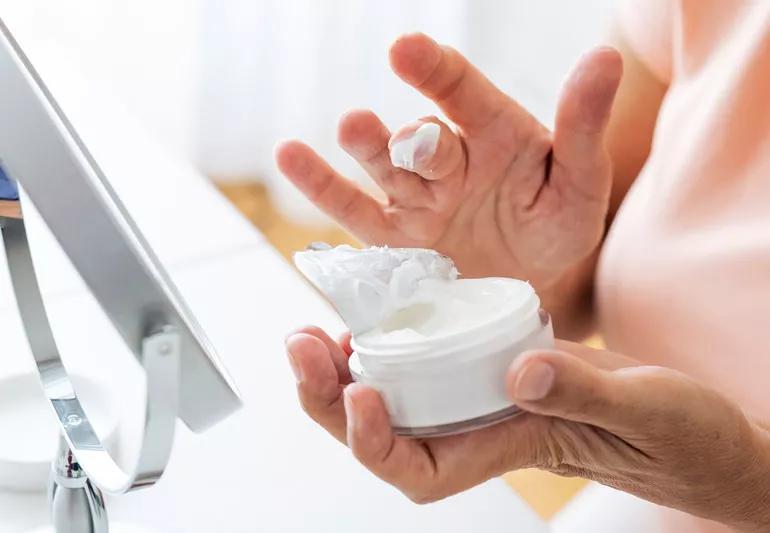
Image content: This image is available to view online.
View image online (https://assets.clevelandclinic.org/transform/bfcee4b6-63d4-454f-8e5d-6b65f1e33347/elderAppliesLotion-1172975326-770x533-1_jpg)
elderly person applying lotion
Aging happens. And if you’re like so many other adults, you’re probably wondering if there’s anything you can do to prevent your skin from showing signs of aging.
Advertisement
Cleveland Clinic is a non-profit academic medical center. Advertising on our site helps support our mission. We do not endorse non-Cleveland Clinic products or services. Policy
According to dermatologist Melissa Piliang, MD, it’s one of the most common questions dermatologists get asked. But, she says, there’s good news. In fact, there are lots of things you can do to help prevent aging skin. You just have to commit to them.
Here are seven ways you can take matters into your own hands and reduce the toll time has on your skin.
It’s the no. 1 way to prevent wrinkles. Want color? Try spray tan or a bronzer. “Apply sunscreen every single day as part of your morning routine,” says Dr. Piliang. “You need it even when walking to your mailbox, or from your car into the store.”
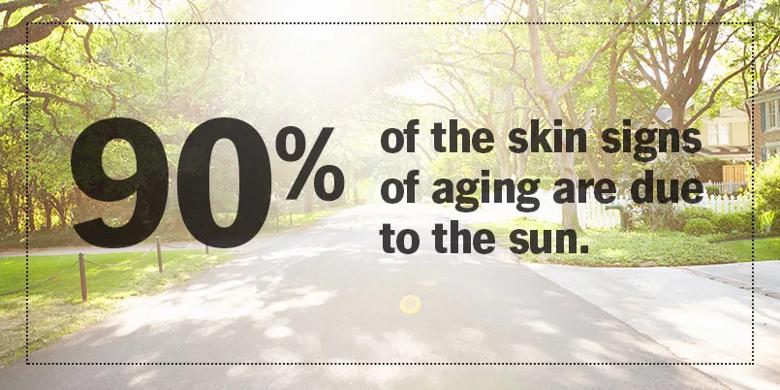
Image content: This image is available to view online.
View image online (https://assets.clevelandclinic.org/transform/74dbd0dc-3c1c-4de1-846f-52d2e72fc059/16-HHB-2191-Wrinkles-Graphics-1_jpg)
Avoid fragrances and any products that aren’t gentle on your skin. “Irritation causes dryness and more damage,” says Dr. Piliang. Instead, find moisturizers with ceramides that replenish your skin, and alpha-hydroxy acids (AHAs) that exfoliate and soften it.
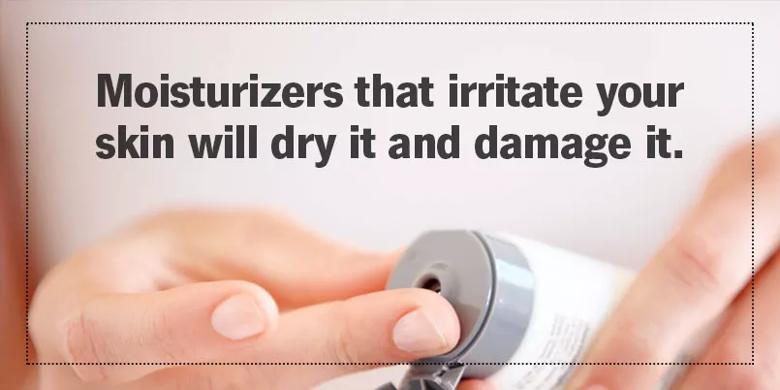
Image content: This image is available to view online.
View image online (https://assets.clevelandclinic.org/transform/0dc78b4e-4c45-4978-a2a7-ecdec8fe10c2/16-HHB-2191-Wrinkles-Graphics-2_jpg)
Have a sweet tooth? Partial to pasta? Sugar and refined carbs will spike your blood sugar, triggering the release of insulin. Insulin causes inflammation in your skin and all over your body. “Sugar binds to the elastic and collagen fibers that make skin look plump and youthful. Damage to these fibers means less support for your skin — and more wrinkles,” explains Dr. Piliang.
Advertisement
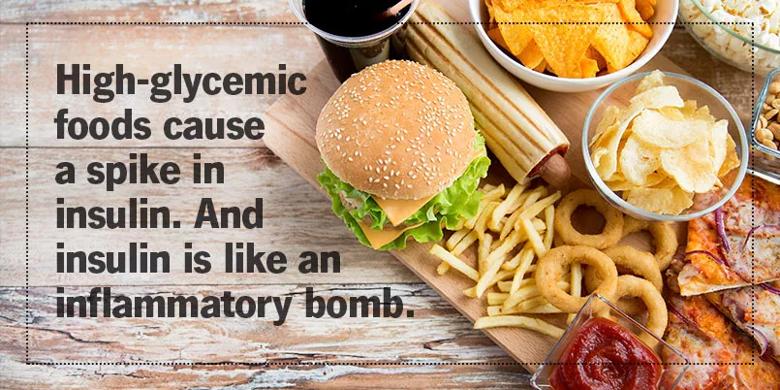
Image content: This image is available to view online.
View image online (https://assets.clevelandclinic.org/transform/c154b5f8-a5cc-4617-8375-e0abdfd231a1/16-HHB-2191-Wrinkles-Graphics-3_jpg)
Environmental pollutants — like soot and car exhaust fumes — can also damage your skin. If you’re exposed to pollutants every day, walking down your street, look for parks and green spaces to stroll.
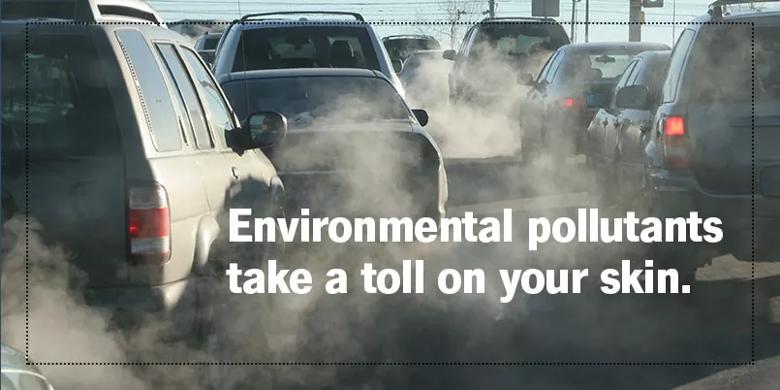
Image content: This image is available to view online.
View image online (https://assets.clevelandclinic.org/transform/b7080e23-e3fb-4a45-8145-1166724133a0/16-HHB-2191-Wrinkles-Graphics-4_jpg)
Over the years, not getting enough sleep can damage your skin. “Again, you want to avoid the inflammatory bomb caused by insulin,” says Dr. Piliang. Do your best to get six to eight hours of sleep per night. Try getting up early every day and going to bed at the same time every night.
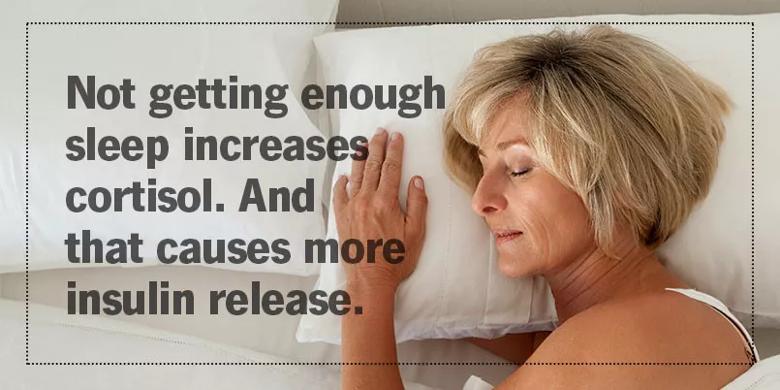
Image content: This image is available to view online.
View image online (https://assets.clevelandclinic.org/transform/3570af7c-1ff6-4df6-b452-e0d2412d097a/16-HHB-2191-Wrinkles-Graphics-5_jpg)
Smoking causes havoc beyond your heart and lungs, damaging your skin, too. “Smoking makes the little blood vessels in skin constrict,” explains Dr. Piliang. “Over time, the collagen and elastic fibers are damaged, and your skin gets more wrinkled.”
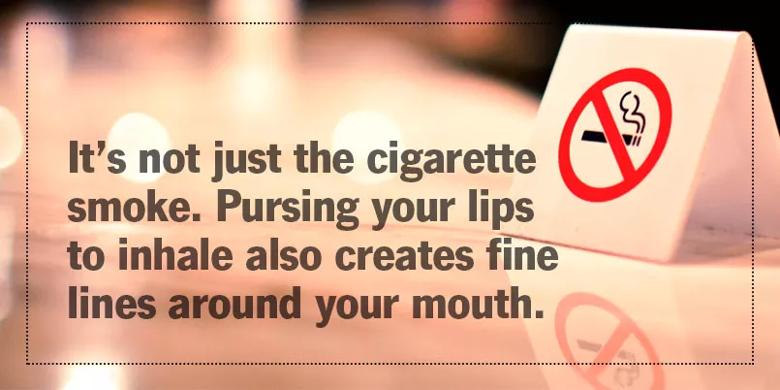
Image content: This image is available to view online.
View image online (https://assets.clevelandclinic.org/transform/be68b620-8017-4353-8109-b1afd7c001ea/16-HHB-2191-Wrinkles-Graphics-6_jpg)
“Eating a good diet with lots of healthy fats from olive oil, avocado and nuts will nourish your skin,” says Dr. Piliang. Your skin loves antioxidant-rich fruits and veggies, and lean proteins, too. And be sure to hydrate your skin with lots of water.
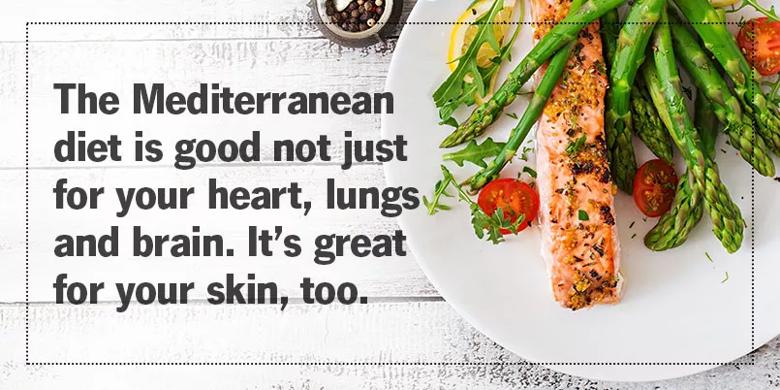
Image content: This image is available to view online.
View image online (https://assets.clevelandclinic.org/transform/bfc787a9-69e9-4312-b077-7597f76183d1/16-HHB-2191-Wrinkles-Graphics-7_jpg)
“The more of these healthy habits you wrap into your lifestyle, the more your skin will reflect them,” Dr. Piliang emphasizes.
Advertisement

Sign up for our Health Essentials emails for expert guidance on nutrition, fitness, sleep, skin care and more.
Learn more about our editorial process.
Advertisement
Topical treatments — and even some cosmetic procedures — may help reduce the appearance of this crinkled-paper look
Though popular with influencers and celebrities, there’s little research to back up claims that they work
This noninvasive procedure can help aging skin by boosting collagen production
Your blood vessels shrink and your skin forms wrinkles to help you grip objects
Try limiting heat styling and eating a healthy diet instead
Lifestyle changes, neck exercises, injections and surgery can all help improve turkey neck
Using tape to smooth wrinkles may be a temporary fix, but there are still risks
What you can do for laugh lines and facial creases
Although it could be used as a moisturizer, this new trend is not recommended
Communicating clear limits helps protect your time, energy and emotional well-being
High cholesterol can be genetic, but testing and treatment can lower your heart disease risk